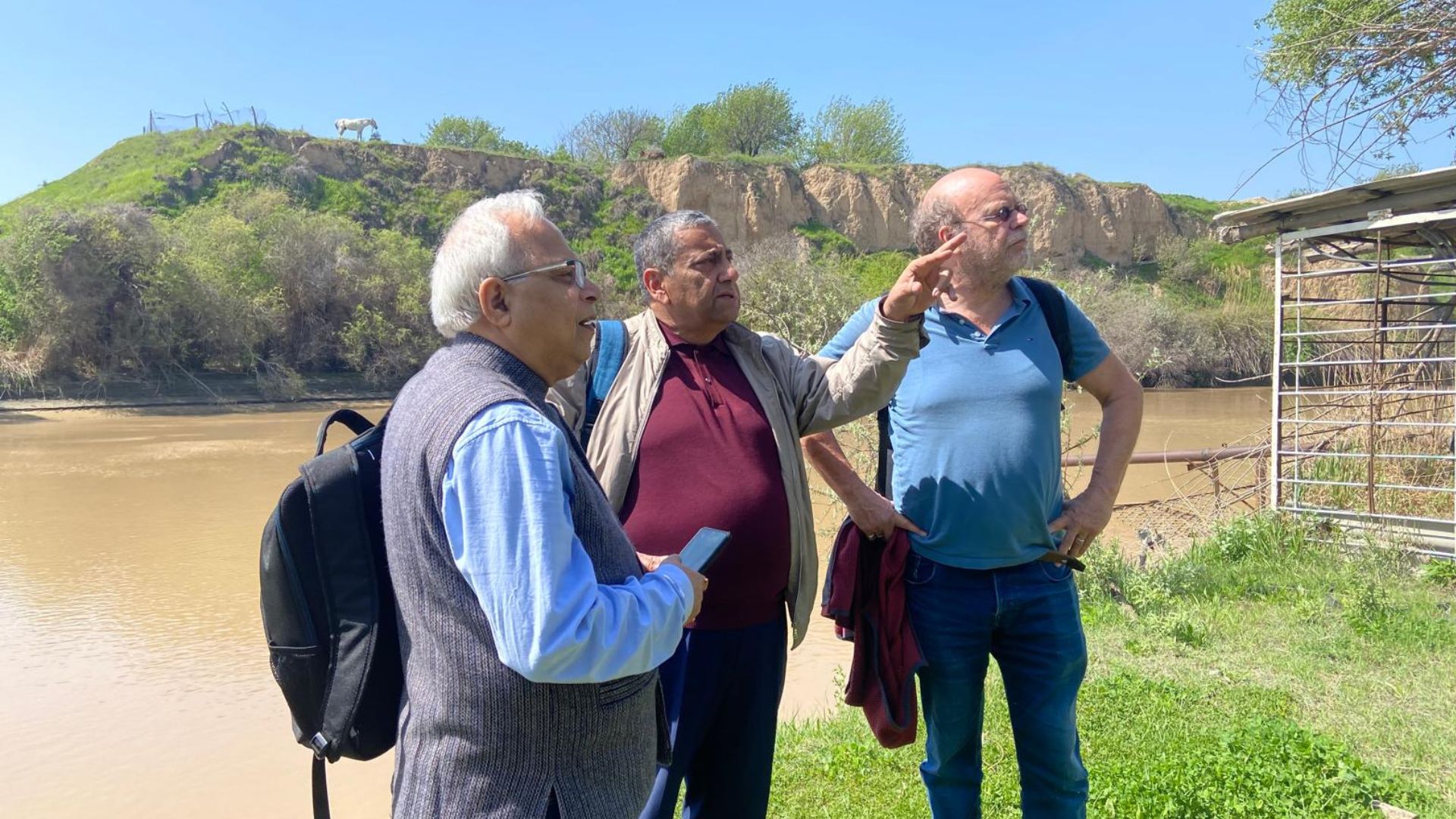Patrick Van Damme, Dean of the Faculty of Tropical AgriSciences (FTZ), recently concluded a productive visit to Uzbekistan, specifically engaging with the University of Digital Economics and Agrotechnology in Tashkent. This visit was financed under the ERASMUS+ KA171 call 2022 and came in response to an invitation from Dr. Muhtor Nasirov, the head of internationalisation at Samarkand State University.
The trip was a significant step in building upon the personal and professional relationship that Dean Van Damme has built and cultivated with Dr. Nasirov over the past 15 years. This long-standing connection, which began during his time at Ghent University (Belgium), has now paved the way for deepening collaborative efforts between these institutions.
Through CZU’s Memorandum of Understanding (MoU) with Tashkent, Dean Van Damme has successfully broadened the scope for potential partnerships, not only with Tashkent but also with Samarkand. During his meetings with representatives from both universities, including Prof. Dr. Anvar Nizamov, vice-rector of academic affairs at the University of Digital Economics and Agrotechnology, Tashkent, Dean Van Damme discussed various collaborative projects. These discussions focused particularly on initiating a summer school that would concentrate on Water Harvesting Techniques, an area identified as critical by local farmers through interviews that highlighted the main challenges and priorities they face.
Uzbekistan, a (double!) landlocked country in Central Asia, is bordered by Afghanistan to the south, and also shares borders with Kazakhstan, Kyrgyzstan, Tajikistan, and Turkmenistan. At first glance, Uzbekistan may appear as a land of sand and stone, inhabited by poor farmers in a harsh landscape. However, a closer look reveals rich natural beauty and remarkable historical sites that testify to its vibrant history. This wealth is largely due to the Silk Road, which traversed its southern regions from China to Rome in the ancient days. The emirs who ruled this land could afford to build whatever they envisioned—from wells to palaces, many of which can still be admired today.
Nature has generously endowed Uzbekistan with a stunning diversity of landscapes: the hot sands of the Kyzyl-Kum Desert juxtapose with lakes of remarkable freshness and clarity; lifeless steppes alternate with green oases, where one can enjoy sweet melons in the shade of vineyards. Fertile valleys with blooming orchards, vast fields of white gold—cotton, thousands of mountain streams converging into the mighty rivers Amu Darya and Syr Darya, and ancient cities with tall minarets offering views of both snowy peaks and lifeless sands—all of this is Uzbekistan. The country also experiences extreme weather variations between summer and winter, with very dry summers that underscore the importance of water and soil protection.
Next Steps for Collaboration will include the validation of the Memorandum of Understanding signed by the Samarkand side, which needs to be approved by CZU’s central management. Additionally, efforts will commence to secure funding for organizing the proposed summer school in 2025. Furthermore, Samarkand State University should be included in the list of priority institutions for Erasmus+ staff and student exchange programs.
Dean Van Damme's extensive experience in Central Asia, including work in Kazakhstan and Azerbaijan, positions him well to spearhead these initiatives. The proposed summer school aims to address climate change challenges, focusing on water harvesting capacity building and soil protection. This initiative will not only incorporate technological advancements but also consider the social aspects crucial for farmer engagement and success.
Further recommendations include connecting with representatives from the Food and Agriculture Organization (FAO) to seek additional support and funding. With a solid grant idea and a signed memorandum of cooperation, the foundation has been laid for a robust proposal that will benefit all parties involved.
This visit marks a beginning for enhanced cooperation between CZU, the University of Digital Economics and Agrotechnology, Tashkent, and Samarkand State University. The collaborative efforts envisaged will contribute significantly to addressing climate change impacts in the region through education, research, and practical solutions.


